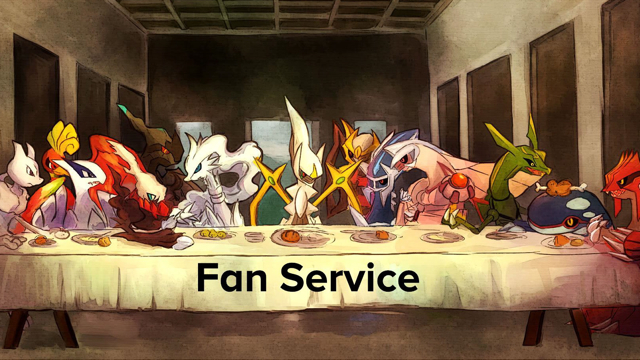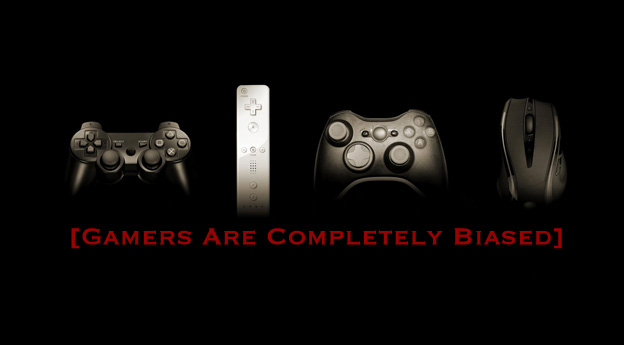
Folks, I have a confession to make: I'm a hopeless nostalgic. It's true. Every time I pick up a game, I always think to myself, "Hmm, is this as good as I remember it," or rather, "I bet it's not as good as the previous." No matter what original or continuing franchise I happen to get into, a certain attitude of perspective goes into it based on my previous gaming experiences. I can't help but look to the games of my childhood as constant standards for the industry and I wonder if it's fair. Can I stay objective when I try to appreciate a game, or is it inevitable that I look to those good old days? More importantly, is it just more fun that way?
Among other things, games stand out as some of the earliest and fondest memories of 6-10 yr. old me. Right alongside my first amazement with Star Wars and childish glee over Bill Bixby and Lou Ferrigno's late and great 1970s Incredible Hulk show, sitting down in the late afternoon chasing koopas on a dusty NES or playing a mundane Arthur game on Gameboy Color were strange impressions I've kept with me years. While I could so easily start waxing poetic for any amount of blog-space about my great misuse of pizzas in Lego Island or my time abusing droids in the Clone Wars (2004's, not that horrendous 2008 one) , it doesn't take long to realize how they held my eyes captive compared to ones I find on store-shelves today.
In no small part does gaming nostalgia seem to be different from that of anything else in our human experience. It's easy to say that the world's so much bigger and vivid when you're a child than after reaching the more critical views of adulthood. Looking back at all of my childhood's games (I'm a legal adult, I can say that now ;), I admit that I might not have picked them up had I seen them today on store-shelves. Granted, a few like Pikmin and Mario have aged remarkably well in their gameplay, but would a shallower me fascinated with console power and lowering attention span think of them AS fondly. I might face the sad reality that I may never have desired to play an Animal Crossing or StarFox 3D without my past with the series. In short, my thoughts about them are bigger because they felt bigger to me a long time ago. It's simply a fact of life about childhood, but is it hampering my enjoyment of games?

(It's what's for dinner at any fanboy scene)
That dilemma has inevitably resulted in the many ways I've felt about franchise loyalty as I get to be an older gamer. More and more of my favorite series seem to be changing while I'm still stuck in my beloved memories of the past and like many, sometimes I just can't stand it. Even those series I've more recently gotten into: Assassin's Creed, Ratchet and Clank, Final Fantasy, and even Star Wars's games have all changed their images over the last couple of years and despite their overall technical quality (I give pardons to Connor's magic flying horses), I still mourn the loss of their comforting sense of familiarity. Fellow gamers that've had to deal with this very year's reboot line-up of God of War Ascension and Devil May Cry have expressed similar angst. To me and perhaps you as well, it's about the loss of being able to identify you passions anymore.
My love for developer's fan service is a double-edged sword though and I can't say that it hasn't made me just as enthusiastic about games. Mario's endless amount of retro stages never fail to turn back the clock to a more simple time in my life and Gotham City's mess of superhero lore laying behind every nook and cranny made me find every riddler riddle in Arkham City. In the end, it's a frustrating situation I find myself in where I can't live with my cravings for fan service though most certainly can't bother being excited about games without them.

Regardless of either viewpoints, there's no shortage of strong feelings I have of how developers handle games' nostalgia factor. Unlike gamers, their job is understandably to make money. New console generations means an expanding industry, and that only means more competition to bring in converting new series fans. Such tangled webs of franchise lore like Assassins' Creed or Metal Gear Solid are hardly the way to introduce noobs with and doing everything short of rebooting them is a quick way to make them accessible to newcomers. They don't necessarily mean to rip our childhoods away from our tear-soaked hands, but when they do so it's for business's sake, no matter how cold and unfeeling it is.
With that in mind, it's always been my opinion that games, like film or television, require an identity to stay relevant to players and the industry as a whole. As an arguably new art-form, video-games have little respect in comparison to their far older artistic mediums and their growth is linked to fresh new ideas. Yet the loss of series nostalgia we see as of late's been replaced by a sense that more games are being blended into the same formula. If you've seen any change in the last few years, it's a renewed "action focus" for games that've changed many series around, maybe or maybe not for the better. Resident Evil, Splinter Cell, and Assassin's Creed have all changed because of it and end up more generic for it to fans. It's worse if you read these moves as indications that developers fundamentally don't understand what they're fans want from them. Whether out of incompetence, pride, or a lack of communication, it's a move that's somewhat disturbing to me as a player that advertisement is entirely replacing a professional love for games and not for the better.

Regardless of the need or lack thereof for nostalgia in our gaming, there's nevertheless an undeniable sense of double standards in our entertainment media. The pic above can probably state it more concisely and professionally than I could in a few paragraphs, but its truth remains the same: video-games aren't yet nearly as loved by mainstream audiences or critics as an art-form. Will they with superficial make-overs? Another generation may be the next judges of that decision.

To wrap it up, I suppose it's only right to admit that bias against or for nostalgia is something that life brings us. Bias is simply something we all have in us. Nevertheless, it's important that we all at least by honest about our biases. Loving or hating a game's not the issue, but recognizing why we do is a bigger deal than when hating on others for not. Open differences of opinions and tastes is what moves games and in spite of the conflicts it generates, in the end, its civil discourse reminds us of why we care about video-games.
I suppose that that's enough of a discussion for one day, but it's one that I'll always be having with myself the next E3 reveal or the next big comment thread. Maybe I won't ever escape my hunger for reliving nostalgia. I'll keep playing games for quite a while for them nonetheless. If we can't keep our childhoods through some outlet, then where's the fun in not growing up? Thanks for reading and feel free to throw any blogging suggestions my way.

Up Next: Are Ya Feel'in Lucky?. . .